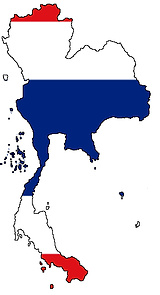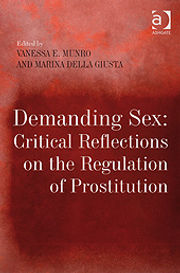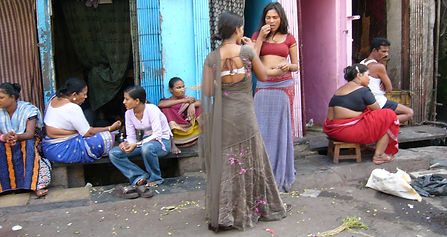Reduced Violence
-
When done between two consenting adults, prostitution is a victimless act. (Stella, 2)
-
Legalization or at least decriminalization can offer women increased safety. (Stella Interview)
-
If sex workers feel protected under the law, they will not be intimidated by abusers who are usually clients as they know they can contact the police for help in vulnerable and dangerous situations- i.e. in cases of physical abuse, exploitation, kidnapping, etc. (ProCon.org)
-
Sex workers can “escape the shadows of illegality” and will not be afraid to seek protection and help when prostitution is legal. (Hernandez, 1)
-
When clients know that the sex worker is legally recognized and has rights, he/she will be less likely to exploit or abuse. (ProCon.org)
NOTE:
It is very difficult to find reliable data on prostitution as sex work often occurs under the radar. Most statistics are approximations based on a limited number of studies, which usually have small non-representative samples. This is due to the fact that in many countries, prostitution or some aspects of it, are illegal. Thus, many individuals participating in sex work are reluctant to share information in fear of sacrificing their own safety or publicly revealing their occupation. As a note, we must recognize that many individuals, who are willing to talk, are able to do so because they have less to lose or are less damaged (psychologically or physically) by the experience. At the other end of the spectrum, unknown numbers of sex workers are kept silent and these reasons may span from fear of losing their job, social stigma, possibility to get arrested, the threat of being physically/psychologically abused by their pimps or clients. The statistics below are taken from the articles "40 A 42 Millions De Personnes Se Prostituent Dans Le Monde," published by Le Figaro in 2012.
The illegality of sex work perpetuates the harmful aspects of this profession- from violence to exploitation to spread of sexually transmitted diseases. By legalizing sex work there are many benefits for the women involved, and even society at large.
The Pros and Cons List
In order to all be on the same page with our topic this month, prostitution will be defined as the practice or occupation of engaging in sexual activity with someone for payment, but will not include the issue of human trafficking for sexual intentions. (Merriam-Webster)
Prostitution
Considered by many to be the world's oldest profession, prostitution is an age-old phenomenon that transcends national borders and global cultures. In the recent decades, sex work has emerged as the subject of controversial debates as its moral, ethical and legal implications are being increasingly questioned and revised. Within these debates we see both strong advocates for and against its regulation. While on one side many countries have chosen to criminalize prostitution to uphold national moral values, often viewing prostitutes as sexual deviants, other countries have abandoned the illegal status of sex work by either legalizing or by making prostitutions laws very ambiguous (neither completly legal or illegal). As women’s status, as well as portrayal within society evolves, the understanding of sexuality and prostitution has resultantly been revised as well. In the last two decades specifically, sex workers have gone from being represented as criminals to increasingly being seen as either victims or empowered agents. This drastic change in depiction has made countries reconsider their stance on prostitution and has challenged them to find the most effective legal ways approach this issue.


Status: Illegal
China's laws on prostitution are clear: it is illegal. Yet no country has as many sex workers. Their services are visible and readily available and what has become a thriving industry is a currency of business and symbol of corruption. The sex industry is growing rapidly. Even small cities have their own entertainment districts. Estimates of the numbers of prostitutes in China range from 3 million according to officials estimates by the government to 10 million by the U.S. State Department to 20 million by one Chinese economist. (ProCon.org)
CHINA
THAILAND

Prostitution in Thailand started to develop in the 1960s particularly in Bangkok. During the Vietnam war, Thai women became known as the “hired wives” of American soldiers. In the last 2 decades, sex tourism has become a very profitable enterprise. Despite these facts, prostitution in Thailand remains illegal through solicitation and public nuisance laws.
In particular, the debate over prostitution policy in Thailand is a debate over women’s bodies, which are seen as markers of national boundaries that are to be controlled by the state. In today’s Thailand, the debate over prostitution involves a struggle over modernity and tradition, over masculinity and femininity, over the role of the state and the identity of the nation. (Taipei Times)
Status: Illegal
Mapping out Prostitution
UNITED STATES

The United States relies on prohibitionist and abolitionist policies to control the prostitution trade. At the federal level, the United States government has enacted prostitution laws in order to protect servicemen and women from the prostitution industry, as well as to satisfy the country’s international treaty obligations. 103 It is an offence to engage in, or solicit for, prostitution within what is deemed to be a “reasonable distance” from a military detachment or operation. It is also illegal to transport individuals across state or international lines for the purposes of prostitution. 104 While the federal government does sanction prostitution under certain circumstances, most of the specific laws governing prostitution fall under state jurisdiction. With the exception of Nevada, every state prohibits prostitution and/or its related activities. The legislation, however, varies from state to state. For instance, only some states specifically criminalize prostitution. 105 The following sections of this paper examine prostitution laws in two states with very different approaches: California and Nevada. (ProCon.org)
Status: Limited Legality
SWEDEN
Sweden was the first country to ban the buying of sex in 1999: Buyers face fines and up to 6 months in prison. The selling of sex is not illegal, but made difficult by the laws around prostitution. Brother ownership as well as pimping are illegal
"In Sweden, prostitution is officially acknowledged as a form of male sexual violence against women and children. One of the cornerstones of Swedish policies against prostitution and trafficking in human beings is the focus on the root cause, the recognition that without men's demand for and use of women and girls for sexual exploitation, the global prostitution industry would not be able flourish and expand." (Ekberg, 18)
Status: Limited Legality


Since 1927, prostitution in Germany has been a de-criminalized act in order to combat venereal diseases. However, in 2002, under the Prostitution Act, Germany fully legalized prostitution, brothel ownership, and the act of buying and selling sex, with the goal of improving social welfare and legal rights of sex workers. Viewing prostitution like any other job, under this act sex workers could “enter into employment contracts, sue for payment and register for health insurance, pension plans and other benefits.” Considered to be one of the most liberal laws governing the sex industry, Germany has experienced both positive and negative effects that accompany the green light for the red light. (Gunter, 5) Today, Germany has more prostitutes per capita than any other country in Europe, and represents a multi billion dollar money making industry for Germany, as the labor is taxed like any other (14.5+ billion). (Gunter, 8) On the other hand, the sex trade is associated with creating a space analogous with human trafficking. While it is clear that the exploitation of sex workers is illegal, the legalization of brothels and pimping makes it easier for trafficking to continue to occur under the radar.(De Pommereau, 1)
Status: Legal
Germany

Bangladesh
In Bangladesh prostitution is legal for women over 18, while male prostitution is illegal. In 2002 more specifically, the government changed the law in an effort to improve the legal situation of prostitutes, although social stigmatization remains widespread for sex workers throughout the country as they are considered at the bottom of the social pyramid. While regulation of sex work under the law often offers protection and increased rights for women in the industry, it was estimated in 2004 by UNICEF that Bangladesh has more than 10,000 minors working in the sex industry, a shocking fact that is continually ignored by the authorities. The widespread illegal presence of underage sex workers adds fuel to their vulnerability and exploitation since they largely are unseen and thus unprotected by the law. Many blame this incompetence of law enforcement as due to corruption with police and local government officials who are often easily bribed by pimps and brothel owners with money. (US Department of State Bureau of Democracy, Human Rights, and Labor)
Status: Limited Legality
Legal for women, not men
Prostitution has traditionally been legal in Canada, as for the nation’s history for a long time there were no laws prohibiting the exchange of sex for money. However recently in December of 2014, Canada made the selling of sex legal and the buying of sex illegal, where buyers face a minimum of $500 fine and up to five years of imprisonment. This approach comes from the desire for Canada to create safer conditions for sex workers without having to promote the demand of buying itself, yet creates a situation of confusion and controversy. Many people ask the question, how can one practice sex work without someone buying, and thus breaking the law? Many groups advocating for the rights of sex workers were dismayed with this decision as they believe there is a link between the criminalization of prostitution and violence against sex workers. (Mas, 1)
Status: Limited Legality

Canada
Now it's up to you to make up your mind on the subject!
The Big Players:
Whore’s Glory
by Michael Glawogger
Sources we like:
Very Young Girls
by Nina Alvarez
#UNDERTHERADAR
Director David Schisgall addresses the sensitive topic of underage prostitution in New York City with this sobering documentary detailing the stories of several unsuspecting girls who fell prey to the city's vicious and manipulative pimps. As hopeless as the girls' situations may seem, however, there is a light at the end of the tunnel in the form of former prostitute Rachel Lloyd. The founder of Girls Education and Mentoring Services (GEMS), Lloyd is committed to ensuring that the youth of today are empowered and protected.
Whores' Glory, the third film in Michael Glawogger's globalization trilogy (following Megacities, Workingman's Death), is an explicit and unflinching exposé of global prostitution. Glawogger's latest larger-than-life documentary is an audacious, non-judgmental study of sexuality, politics, human behavior and the effects of capital and religion on both women and men from starkly different cultures. -- (C) Kino Lorber
Prostitution, Sex Work and the Law
Pimp
A person, usually a man, who controls prostitutes and arranges clients for them, taking a percentage of their earnings in return.
Female prositutes, in paticular, usually seek out pimps for security purposes, or to gain access to a network of clients that already know the pimp.
Sometimes, it is the pimp that recruits young women to become prostitutes. (Merriam-Webster)
A brother is a place where people may come to engage in sexual activity with a prositute (or sex worker). technically, any premises where prositution commonly takes place qualifies as a brothel. However, for legal or cultural reasons, establishements sometimes call themselves massage parlors, bars, strip clubs, or by some other description. (Merriam-Webster)
Brothel
Defining Prostitution and its terms
40 to 42 million people are prostituted
around the world
a number that never ceases to increase every year.
To put things into perspective, people in prostitution outnumber the current population of Canada, which is approximately 35.16 million people.
The Numbers
80%
of Prostituted people are
women and girls
and Most clients are Men
Prostitution is therefore a very gendered issue
Worldwide turnover
evaluated at more than
60 billion euros
each year
equal to about 74 billion US dollars (conservative estimates)
(Dusch, 2002)
Movies:
Sex and Borders: Gender, National Identity, and Prostitution Policy in Thailand
by Leslie Ann Jeffrey
Books:
-
Contrary to popular belief, sex work is not a victimless crime.
-
The sex industry is associated with high levels of violence, physical assault, exploitation, and abuse. Thus, by legalizing sex work, one is promoting violence against sex workers.
-
Because sex work is often performed underground, sex trafficking is tightly linked with it. By legalizing sex work, sex trafficking could possibly be easier to do.
-
Traffickers often use the (legal) work permits to bring foreign women into countries with sex industries, consequently “masking the fact that women have been trafficked, by coaching them to describe themselves as independent “migrant sex workers.” (Personal Communication, Representative of the International Human Rights Network, 1999).
-
Many women are forced into sex industry and are not there willingly.
-
Most women working as sex workers are in fact foreigners in that country, again making it hard to enforce anti-trafficking at a working level.
-
For example, following the legalization of prostitution in Germany in the 80s, it “it was widely recognized that 75% of the women in Germany’s prostitution industry were foreigners from Uruguay, Argentina, Paraguay and other countries in South America (Altink, 1993, p. 33).”
-
-
There is difficulty in differentiating which women are there on their own free will and not.
-
Higher rates of physical assault and abuse are associated in sex work industry, thus legalizing it is promoting a profession that increases chances for individuals to be put in unsafe and violent situations.
Increased Violence

Prostitution in Thailand has been the subject of media sensationalism for decades. Bangkok's brothels have become international icons of Third World women's exploitation in the global sex trade. Recently, however, sex workers have begun to demand not pity, but rights as workers in the global economy.
This book explores how prostitution policy is linked to the disciplining of Thai national identity and gender. Jeffrey asserts that certain images of "The Prostitute" have silenced discourses of prostitution as work, while fostering the idea of the peasant woman as the embodiment of national culture. This idea, coupled with a will to shape the modern state through the behavior of middle-class men, has been a main concern of Thai prostitution policy. Gender, the author argues, has become the mechanism through which states respond to the contradictory pressures of globalization and nation-building.
The Pros
The Cons
-
Legalization will help to protect the safety and health of sex workers, as they will have access to health care benefits, routine and required check-ups that increase security for sex workers, require certification, and thus expand awareness on STIs and legally require their clients to where condoms. (Hernandez, 2)
-
If legalized, sex workers can conduct themselves openly, on the radar, and thus, more professionally with better working conditions. (Hernandez, 2)
-
Sex workers will have the right to demand “clean, safe places to work with the absolute right to refuse to engage in unsafe sex practices” (Alexander, 93).” (Bell, 5)
-
The industry can be “regulated by the same occupational safety and health regulations offered to workers in other labor industries.” (Bell, 2)
-
Now many brothels have cameras to ensure the protection of workers when they are in private with their clients. (Bell, 3)
Health Benefits and Better Working Conditions
-
Like a sportsman or model that uses their body to make money, sex work should be viewed like any other job, and sex workers thus deserve to be protected under the same rights. These rights include the right to unionize and demand certain standards at work. (Bell, 1)
-
Sex work is happening anyways, so if we legalize it, the trade can be a great source of tax revenue that can benefit communities. (Fuchs, 3)
Like any other profession
-
An individual has the right to make decisions regarding his/her own body, and more specifically, women have the right to control their sexuality, something that has historically been denied (Hernandez, 3)
-
By legalizing prostitution, sex workers can have more dignity as they are recognized like other professionals.
-
Legalizing sex work will help get rid of the stigma against sex workers in society, and thus contribute to a supportive and nurturing community for sex workers in which they do not have to be ashamed. (Stella, Interview)
-
Sex workers can lead normal lives when prostitution is legal, and do not have to worry about seediness that comes with working illegality. (Bell, 4)
-
We must progress past our puritan, conservative point of view which views sex work, and sexuality more generally, within a moral lense that deems it shameful and accept sex work as being like any other profession.
Empowerment
From the cons perspective, many adherents believe that entering into prostitution cannot be considered as a real choice or a job like any other. Legalization merely throws a blanket on top of an industry that is prone to violence, trafficking, and exploitation, allowing these harmful things to be protected.
-
Prostitution is psychologically harmful to women, and many sex workers experience Post Traumatic Stress Disorder. (JG Raymond, 8)
-
Not all women will want to submit to required health check-ups required by the law, and will turn to clandestine sex work on the streets. Thus, defeating the whole purpose of legalization.
-
Some argue that by legalizing sex work, women are taken off the streets and confined into small spaces inside where they will have little opportunity to create supportive networks or be exposed to outreach that can help them exit prostitution (Aghatise, in press).
Higher health risks on the job
-
Legalizing sex work will expand the sex industry in general, something many nations and states do not desire.
-
What do children usually say they want to be when they grow up? A doctor? Soccer player? Artist? When given the option of their dreams, prostitution is not something most people decide they want to become. This signals the fact that most sex workers have limited options in how to make ends meet, and turn to their bodies to do so.
-
Legalizing sex work is greatly benefiting pimps, traffickers, and the sex industry- are these the key stakeholders in our societies that really need protection? Thus, while sex workers are the one’s most in need of the benefits that come with decriminalization/ legalization, other unintended actors reap the rewards also. (JG Raymond, 4)
-
“The Amsterdam-based ChildRight organization estimates that the number of children in prostitution has increased by more than 300% between 1996 –2001, going from 4,000 children in 1996 to 15,000 in 2001. ChildRight estimates that at least 5,000 of these children in Dutch prostitution are trafficked from other countries, with a large segment being Nigerian girls (Tiggeloven, 2001).”
Not like any other profession
-
In some people’s opinion, sex work is unethical, immoral, and degrading to women. (Bell, 3)
-
Sex work is an embodiment of patriarchy. (Bell, 2)
-
“Prostitution dehumanizes, commodifies, and fetichizes women." (Farley, 60)
-
Because women have to legally register under their name to be a sex worker, many women complain that they are then publically stamped as being a “whore” and lose their anonymity.
DisEmpowerment

Demanding Sex: Critical Reflections on the Regulation of Prostitution
by Vanessa E. Munro and Marina Della Giusta
Interrogating supply/demand from an inter- and multi-disciplinary perspective, this collection focuses on the supply/demand dynamic of prostitution. It brings into play a range of other societal, economic and psychological factors such as the social construction of sexuality, the viability of alternative choices for prostitutes and clients, and the impact of regulatory regimes on the provision of sexual services.
The factors which underlie each component of the supply/demand dyad are also studied and an examination is made of their dynamic interrelation. The collection emphasizes the importance of rendering policy makers alert to the evidence emerging from empirical studies conducted in different fields of enquiry, in the hope of moving beyond polarity and politics at the local, national and international level.
Citations:
-
"100 Countries and Their Prostitution Policies - Legal Prostitution- ProCon.org." ProCon. N.p., 9 Dec. 2014. Web.
-
Bell, Kelly J. "A Feminist's Argument On How Sex Work Can Benefit Women." Student Pulse. N.p., 2009. Web.
-
"The Fallacy of “Unintended Harms” Bill C-36 and Security of Person: Criminalization Costs Lives." (n.d.): n. pag. Chez Stella. Stella, 8 July 2014. Web.
-
Hernandez, Johaney. "The Benefits of Prostitution." FIUSM. N.p., 30 Jan. 2014. Web. 09 Mar. 2015.
-
Farley, Melissa. "Prostitution, Trafficking, and Traumatic Stress in 9 Countries." (n.d.): 33-65. Prostitution Research. Haworth Press. Web.
-
Raymond, Janice G. "Ten Reasons for Not Legalizing Prostitution And a Legal Response to the Demand for Prostitution." The Journal of Sex Research 1.3 (1965): 177-87. Embrace Dignity. 2003. Web.
-
Aghatise, E. (In press). Trafficking for Prostitution in Italy: Possible Effects of Government Proposals for Legalization of Brothels in Italy. Violence Against Women. Agence France Presse (2003).
-
Stolen Lives: Trading Women into Sex and Slavery. London: Scarlet Press. Björling, S. (2001).
-
No More Prostitutes, Danish Union Says. June 30, 2003. Altink, S. (1995).
-
Gatuprostitutionen minskar i Stockholm. Dagens Nyheter.February 16, 2001. Budapest Group (1999).
-
The Relationship Between Organized Crime and Trafficking in Aliens. Austria: International Centre for Migration Policy Development. June 1999.
-
-
"Top 10 Pros and Cons - Legal Prostitution - ProCon.org." ProConorg Headlines. N.p., 2009. Web.
-
Fuchs, Erin. "7 Reasons Why America Should Legalize Prostitution." Business Insider. Business Insider, Inc, 13 Nov. 2013. Web.
-
US Department of State Bureau of Democracy, Human Rights, and Labor, "2008 Human Rights Report: Bangladesh," www.state.gov, Feb. 25, 2009
-
Mas, Susana. "Prostitution Law Comes into Force on Day of Action on Violence against Women." CBCnews. CBC/Radio Canada, 06 Dec. 2014. Web. 10 Mar. 2015.
-
De Pommereau, Isabelle. "Rethinking a Legal Sex Trade." The Christian Science Monitor. The Christian Science Monitor, May 2005. Web.
-
Gunter, Joel. "Welcome to Paradise." Telegraph.co.uk. The Telegraph, 2013. Web.
-
Ekberg, Gunilla,"Purchase Of Sexual Services: Best Practices For Prevention Of Prostitution And Trafficking, and In Human Beings,” Published In The October 2004 Issue Of The Jou. "The Swedish Law That Prohibits the Purchase of A Sexual Service: Best Practices for Prevention of Prostitution and Trafficking in Human Beings." Violence Against Women. 2004; 10:1187-1218. (Sage Publications, United States: 2004).
-
"Thailand Holds Debate on Legalizing Prostitution - Taipei Times." Thailand Holds Debate on Legalizing Prostitution - Taipei Times. Taipei Times, Nov. 2003. Web.
-
Lombard, Marie-Amélie. "40 A 42 Millions De Personnes Se Prostituent Dans Le Monde." Le Figaro. N.p., 2012. Web.
Interview with the Stella Team
Meet The Problem Solver:
Stella, l'amie de Maimie
Can you tell us of recent projects and initiatives by Stella?
Majority of the work we do is outreach. That means we meet with sex workers on the street, in massage parlours, in strip clubs, and in drug venues. We give legal information and provide condoms and other prevention material like sterile syringes and crack pipes, and also refferals. We do partnerships with health services like Médecins du Monde and nurses from the community health centers when they offer « proximity nurses » Our work is harm reduction based and focus on empowerment. That means we meetpeople wher they are at and support them in any way they want.
At the drop-in, we have an listening line, a safe place for sex workers meetings like the monthly community supper so we can support the creation of solidarity among the community. We also host a medical clinic twice a month.
Some more special projects include Stella in Action and the Prison Project. Stella in Action is a project that aim to support sex workers reagrding their experiences with violence wether it’s coming from the state, interpersonal relations and with bad clients and agressors. We offer self-defense courses, sessions with a sexologist, and create new tools so sex workers can have a security plan based on our realities ans needs.
The Prison Project bring Stella inside jail to meet with incarcerated women and give workshops about HepC. We bring information but also learn from women with lived experience in carceral system. We value community sharing that’s why we love to create new tools and share it with all our community inside or outside prison.
Linked to the prison project, we also have an amzing projetct called « je ‘C’ prendre soin de moi » whch is an HepC prevention backpack for sex workers living on the street. These bags include 20 items like harm reduction materials, baby wipes, toothbrushes- and a calling card. We do have more than 30 partners, both localy and provincaly, who receive a training on how to work with the bags in their own organization. This year volunteers at Stella made 700 bags to distribute il all the Quebec.
Let’s not forget the bad clients and agressor list wich was the first tool create by and for sex workers. This list is monthly published in our Bulletin stellaire who is distribute to our community.
Who are Stella's favorite organizations and/or initiatives within this domain?
Montreal ASTTEQ - works with trans community and also with sex workers
Rezo: supports male sex workers
Projet Lune in Quebec city- by and for sex workers.
How can we take action and get involved?!
You can support the struggle by listen to sex workers and get educated on issues related to sex work.
You can also become member of the organization.
You can donate your time as a volunteer or money
Do you have any last comments to add?
Our community is quite diverse. We are mothers, aunties, sisters, daughters. Nobody has the same story and we are all coming from different backgrounds. We are everywhere in the society! Be nice to sex workers.



What current events within the domain of sex work stand out to Chez Stella at the moment?
A big upcoming events will be a presentation on the effects and impacts of criminalization on sex workers at the FFQ (Féderation des Femmes du Québec conference. We hope that someday the voices of sex workers will be respected and included in the women movement in Quebec and globally.

What is the story of Stella, l’amie de Maimie?
Stella was created in 1995, formed by sex workers, public health researchers, and academics. So the philosophy behind the organization is to offer a safe place for women working in the sex industry and to collectively fight for our rights like human and labour rights. Stella is a by and for sex workers which means that are services are peer-led and we center sex workers in all the decisions process. We name our organization in honor of a briliant prostitute name Stella and Mamie Pinzer which has opened her house so sex workers in the Red Light District in Montréal could have a coffee and rest.
As for a fun fact- the graphic of our logo features a woman with boa was actually taken from an old stripper license from Ontario.
According to Chez Stella, what is the most effective way in safeguarding the rights of sex workers?
We think decrimanlization is the most effective way! In our opinion, decriminalization is the first step to break with the stigma of being criminalized and to assure sex workers rights. Sex workers should be able to access health and legal services without discrimination and should be protected under labour rights as any other workers. The workers from the sex industry should be able to do whatever we need to do to assure safety, and sex workers should have the ability to form legitimate unions together.
We believe that no special law should be created for sex workers. There is already laws that criminalized forced labour, sexual exploitation, robbery, murder and sexual assault. Society needs to understand that sex workers are everywhere and that we contribute to create a safer society for everybody.
In your opinion, which country do you think as the most ideal way of safeguarding and empowering sex workers and why?
We think New Zealand offers an great example of a country that has successfully decriminalized sex work. Since the Prostitution Reform Act in 2003, sex workers said their working conditions are better, they now can access police with less fear of being stigmatized, and can put charges against a bad client or a bad boss.
Meet the Fokkens
by Gabriëlle Provaas, Rob Schröder
"In the old days, the local copper would tap on the window if a girl was showing too much ankle, now the girls deal coke from their cubicles. Louise and Martine Fokkens are identical twins. For over fifty years they were working as prostitutes. They freed themselves from the control of their pimps, ran their own brothel, and set up the first informal trade union for prostitutes. They are familiar faces in Amsterdam's Red Light District, but soon they will bid their farewells. The Ladies Fokkens is a portrait of these remarkable women." -synopsis from site











